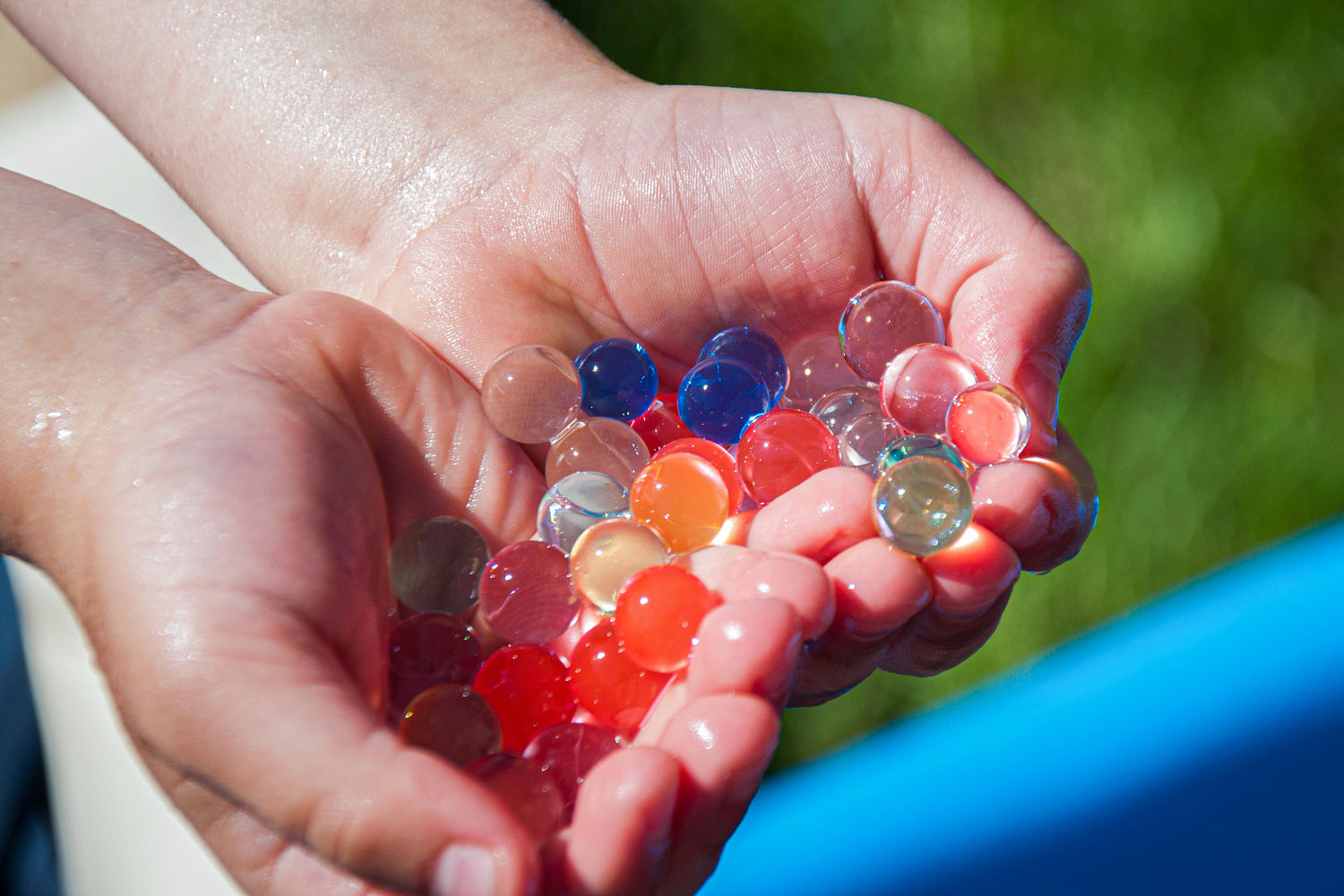
At 10 months old, Esther Jo Bethard died after swallowing a stray water bead — a tiny, absorbent sphere that can grow inside the body and cause life-threatening injuries.
Water beads are colorful and squishy, so they’re often sold as children’s toys or sensory tools. But they can easily scatter across a home and become hidden in carpets or other areas. Young children may mistake them for candy and put them in their mouth, with grave consequences.
The hazards associated with the products are manifold.
Water beads are small enough for children to choke on, but they can also grow in liquid — in some cases, swelling to the size of a golf ball. When children swallow them, the beads can expand inside their bodies, causing intestinal blockages, bowel obstructions or lung damage. Some kids may put water beads in their noses or ears, causing pain, hearing damage, blockages or infection.
From 2018 to 2022, the Consumer Product Safety Commission recorded nearly 7,000 emergency room visits for injuries related to water bead ingestion.
A bipartisan bill introduced Thursday in the Senate proposes a ban on the sale of water beads designed or marketed as children’s toys, sensory tools or educational or art materials.
The bill, named “Esther’s Law” in honor of Bethard, is sponsored by Democratic Senators Tammy Baldwin of Wisconsin and Bob Casey of Pennsylvania, and Republican Sen. Susan Collins of Maine.
“Parents buy toys and educational materials for their kids with the understanding those products are safe for their children. Sadly, with water beads that is just not the case,” Baldwin said in a statement. “We need to do more to prevent kids from ingesting these dangerous products and give parents the confidence they deserve that the toys they buy are safe.”
The bill instructs the CPSC to establish the ban, since the agency has the authority to outlaw hazardous products to protect the public. It also directs the CPSC to require warning labels on water bead packages that aren’t meant for children and to consider regulating the colors of water beads that aren’t children’s toys but pose an ingestion hazard.
The CPSC has previously urged parents to remove water beads from any environment with children ages 3 or younger. Childcare centers, camps and schools should avoid the beads entirely, according to the agency. The CPSC has also recalled certain products that contain water beads, including the toy kit linked to Bethard’s death.
But some parents, nonprofits and lawmakers have pushed for a total ban in the U.S.
“Esther’s Law will help ensure that other families do not have to endure the same senseless tragedy,” Taylor Bethard, Esther’s mother, said in a statement. “Rather than holding Esther each day, I’m left holding onto her tiny shoes, a ring with her perfect curls, while fighting to give her a voice.”
The CPSC does not take a position on legislation, but the agency’s chair, Alex Hoehn-Saric, underscored the need to prevent future injuries and deaths.
“While CPSC is taking steps to address these hazards, the regulatory process can be long and time-consuming,” Hoehn-Saric said in a statement. “The fastest way to address the hazard that water beads present, protect children and babies, and prevent more parents from experiencing these tragedies is with a legislative mandate. I am pleased that Congress is engaged and am hopeful that the process can move forward quickly.”
The new bill is supported by the American Academy of Pediatrics, as well as Amazon, Target and Walmart. All three retailers stopped selling water beads in December.
A separate bill introduced in the House last year by New Jersey Rep. Frank Joseph Pallone Jr. similarly proposes a ban on water beads marketed for kids.
The CPSC has additionally warned that certain water beads contain unsafe levels of acrylamide, a probable human carcinogen.
Injuries related to the products can be difficult to identify and treat, since water beads don’t always show up on X-rays. Some children may require surgery to remove the beads.












